Post-Master's Certificate: Psychiatric and Mental Health Nurse Practitioner
Elevate Your Role in Mental Health
Advance your nursing career and make a meaningful impact on mental wellness with Antioch University’s Post-Master’s Certificate in Psychiatric and Mental Health Nurse Practitioner (PMHNP). Designed for registered nurses who already hold a master’s or doctoral degree, this flexible, accredited program prepares you to deliver compassionate, evidence-based psychiatric care to individuals and families across the lifespan.
Become a Certified Psychiatric-Mental Health Nurse Practitioner
Combining online coursework with immersive clinical experiences, the PMHNP certificate equips you to assess, diagnose, and manage mental health conditions in diverse settings, while preparing to sit for national certification through the American Nurses Credentialing Center (ANCC). Guided by expert, practicing faculty, you’ll gain the advanced skills and confidence to lead with purpose in one of healthcare’s most urgent and expanding fields.
Program Overview
The PMHNP Post-Graduate Certificate allows advanced-degree nurses to expand their scope of practice and specialize in psychiatric and mental healthcare. Rooted in Antioch’s mission to promote justice, inclusion, and equity in healthcare, the program prepares you to:
- Conduct comprehensive psychiatric assessments
- Diagnose and treat mental health conditions
- Provide therapy and medication management
- Deliver trauma-informed, culturally responsive care
- Serve individuals across the lifespan in both inpatient and outpatient settings
Mental health needs are rising across the country. So is the demand for qualified, empathetic psychiatric nurse practitioners. As a PMHNP trained at Antioch, you'll not only meet clinical needs, you'll lead systematic change by promoting access, reducing stigma, and expanding the reach of equitable person-centered care.
The post-graduate APRN certificate program at Antioch University is pursuing initial accreditation by the Commission on Collegiate Nursing Education (http://www.ccneaccreditation.org). Applying for accreditation does not guarantee that accreditation will be granted.
Licensure
This program is designed to lead to state licensure.

Elevating Your Nursing Career with a Proven Legacy
As Proud Co-Founder of the Coalition for the Common Good, Antioch University offers a program with a rich tradition of excellence, honed over 45 years by dedicated nursing professionals. Formerly anchored at Otterbein University, this initiative now thrives at Antioch, continuing a legacy of quality and practical expertise. Benefit from our flexible, student-centered graduate model, designed to empower you with clinical confidence and personalized support, ensuring you're prepared to excel in your nursing practice.
Degree Requirements
2 years
Psychiatric-Mental Health Nurse Practitioners (PMHNPs) are in high demand as mental health becomes a growing national priority. According to the U.S. Bureau of Labor Statistics, nurse practitioner employment is projected to grow 46% from 2023 to 2033—a rate far above average. This growth is fueled by rising mental health needs, provider shortages, and a push for more accessible care.
PMHNPs play a critical role in expanding access to psychiatric services across a wide range of care settings, including:
- Private practice
- Substance use disorder treatment centers
- Community mental health clinics
- Correctional and extended care facilities
- Integrated behavioral health and primary care settings
- Inpatient and outpatient psychiatric units
- Consultation-liaison roles in hospitals
With competitive salaries and growing autonomy, the PMHNP role offers a meaningful, high-impact career path for nurses ready to lead the future of mental healthcare.
Program Details
Antioch University’s Department of Nursing is committed to quality nursing education that uses a holistic caring framework to promote excellence and safe healthcare. We encourage the personal and professional development of faculty, staff, and students, as well as an appreciation for diverse perspectives and humane values. Our goal is to prepare lifelong learners committed to the profession and the community, and to meeting society’s changing healthcare needs.
- Lifelong learning
- Holistic care
- Diversity, inclusion, access
- Purposeful clinical experiences
- Integrity
- Develop competent nursing professionals who can integrate and synthesize knowledge from relevant fields of study to provide safe, high-quality, patient-centered care to diverse individuals, families, groups, and populations.
- Prepare graduate nurses and healthcare professionals for intentional collaboration with other health professionals and healthcare stakeholders to promote optimal, equitable health outcomes that foster social justice in the health promotion and disease management for marginalized populations.
- Equip graduate nurses and healthcare professionals to lead in complex health systems, creating interprofessional partnerships while reflecting on self-bias to pursue personal and professional development while advocating for all humanity.
- Cultivate ethical health professionals that use a variety of informatic technologies to generate, analyze, and synthesize knowledge to improve health and transform healthcare.
Student Learning Outcomes
- Synthesize knowledge from nursing and relevant fields of study as a basis for an advanced practice nursing role for diverse populations. (E1)
- Use the nursing process to perform the independent, collaborative, multifaceted functions of an advanced practice nursing role to optimize healthcare outcomes that advance health equity and lead to positive change. (E9)
- Demonstrate clinical judgment when making decisions regarding the delivery of high-quality, equitable, cost-effective, and culturally relevant healthcare to individuals and populations. (E5, E7)
- Analyze the legal, political, ethical, financial, and professional functions of advanced practice nursing roles and how those aspects affect the community and individuals with an emphasis on marginalized populations. (E8)
- Examine the implications of healthcare issues, healthcare delivery systems, and informatics on nursing and equitable healthcare delivery to all. (E8)
- Provide leadership in advanced practice nursing roles through advocacy for all and change management within the healthcare delivery system. (E6, E10)
- Integrate caring behaviors and patterns into advanced practice nursing roles. (E2, E3)
- Apply the body of nursing knowledge through systematic inquiry, professional standards of care, and evidence-based practice that foster social justice in the health promotion and disease management for marginalized populations. (E4)
Faculty Spotlights

Regina Prusinski, DNP, CPNP-AC, FNP-BC
Chair

Diane White, PhD, RN
Dean

Deana Batross, DNP, RN, FNP-BC, PMHNP-BC
Director
Accreditation Information
(For Applicants – CCNE Accreditation in Progress) All Graduate Nursing programs must complete the CCNE approval process AFTER students are enrolled. In order to have sufficient enrollment and data, programs are encouraged to seek accreditation within 1-2 years.
Not yet. Our graduate nursing program is currently in the process of seeking initial accreditation from the Commission on Collegiate Nursing Education (CCNE). This process includes a comprehensive self-study, peer review, and site visit. The accreditation decision will follow after that.
This means our program has:
- Applied for accreditation
- Submitted a self-study report
- Will be hosting a CCNE site visit
Programs are not considered accredited until the CCNE Board of Commissioners makes an official accreditation decision.
Yes. If the program is granted CCNE accreditation, accreditation can be retroactively applied to include students who were enrolled during the time of the site visit. This means your degree can be considered accredited depending on your enrollment date and the final accreditation outcome.
The timeline typically follows this sequence:
- Final decision by CCNE Board: Late Spring 2028 (April/May)
- Self-study submission: August 2027
- CCNE site visit: October 2027
We will share updates with enrolled and prospective students as we move through each phase.
Our program:
- Meets national curriculum standards for certification
- Our goal is to build a high-quality program that supports both licensure and career advancement.
- Is led by experienced faculty
- Has strong clinical partnerships
- Smaller program size offers more attention and support for student success
- Faculty are intentional with student engagement and interactive learning
- Is committed to full compliance with CCNE and the state Board of Nursing requirements
No, as long as:
- The program is approved by the state Board of Nursing
- You meet the requirements of the certifying body (e.g., ANCC, AANP)
You may sit for your certification exam. The national certification body verifies graduation from a CCNE-approved program to release certification.
We will:
- Designate a faculty contact for questions related to accreditation status
- Share updates via email and our program website
- Host Q&A sessions for prospective and current students
Program Director: Dr. Regina Prusinski
Email: [email protected]
How to Apply
Admission Criteria
- Graduate degree in nursing from an institution of higher education that is fully accredited by the appropriate regional accrediting agency, and from an ACEN- or CCNE-accredited graduate nursing program.
- A current, valid, and unrestricted license as a Registered Nurse in the U.S. and in the state where clinical experiences will be conducted. In addition, an applicant must not have had a previous revocation, denial, suspension, or restriction of their license from any state or country.
- Minimum of one (1) year paid clinical work experience within the past three years as a Registered Nurse before the application deadline, documented on the submitted resume. Clinical work experience, including direct care in a public health, community, hospital, or ambulatory care setting that serves patients across the life span, is recommended.
- Evidence of capacity for graduate study.
- A blended cumulative grade point average of 3.0 or higher on a 4.0 scale for all previous coursework on the submitted transcripts;
- A Science GPA of 3.0 or higher on a 4.0 scale comprising grades in anatomy, physiology, pathophysiology, microbiology, statistics, and chemistry courses;
- Completion of an undergraduate- or graduate-level statistics course with a grade of B or better; and
- Positive professional recommendations.
- Ability to articulate one’s professional goals, evidenced by the faculty interview, with the applicant’s goals congruent with the objectives and resources of the Antioch University Department of Nursing.
Application Requirements
- Complete the online admissions application, including:
- Professional resume. Also include leadership activities, scholastic awards, nursing organizational memberships, and community service, as applicable.
- Evidence of licensure and certification, if any. Include professional licensure numbers and the licensing state, and a copy of the certificate issued by your national board certification body. The Graduate School will verify licensure and certification, which will be added to the student's file.
- Submit official transcripts from all colleges or universities where you earned a degree or certificate (A cumulative GPA of 3.0 or higher is preferred). Email to [email protected] or mail to: Antioch University, Admissions Office, 900 Dayton Street, Yellow Springs, Ohio 45387
- Three letters of recommendation are required from people who are in a position to evaluate your professional (e.g., clinical supervisor, Peer (RN), other clinician, and academic (e.g. professor) work. The person making the recommendation may not be related to you.
- Interview with the Nursing Program faculty if requested. This interview will be conducted via Zoom (video conferencing).
- Students must submit documentation of meeting health requirements – including completion of the American Heart Association Basic Life Support (BLS) curriculum – before starting classes, and must submit documentation of keeping health requirements current throughout their course of study.
All application materials submitted become part of an applicant’s file and cannot be returned.
Application Deadlines
| Semester | Application Deadlines |
|---|---|
| Spring | November 1 |
| Fall | July 1 |
| Please review the Academic Calendar for additional details. | |
If you have any questions during the process, please do not hesitate to contact us at [email protected]. Our faculty and staff are here to assist you throughout the application process.
Tuition
| Program | Cost |
|---|---|
| DNP (All Concentrations) | $765 per semester hour |
| MSN (All Concentrations) | $665 per semester hour |
| Certificates | Contact Admissions for Details |
| View the Cost of Attendance Components | |
Financial Aid
Please note: This certificate is not eligible to use Title IV financial aid at this time.
Many students finance their education through some form of financial aid. You may not be sure which federal, state, public, and private aid packages – such as loans, scholarships, and grants – are right for you. Our staff is here to help you so you can focus on what’s most important: beginning your academic program.
Antioch University is proud to partner with several schools and employers to offer scholarships and/or special educational benefits to employees, students, and alumni of select partner institutions. To learn more about these scholarships and to find out if you are eligible, talk with Admissions.

Start your Antioch Journey
Take your next step - talk to our admissions team to find the right program for you.
